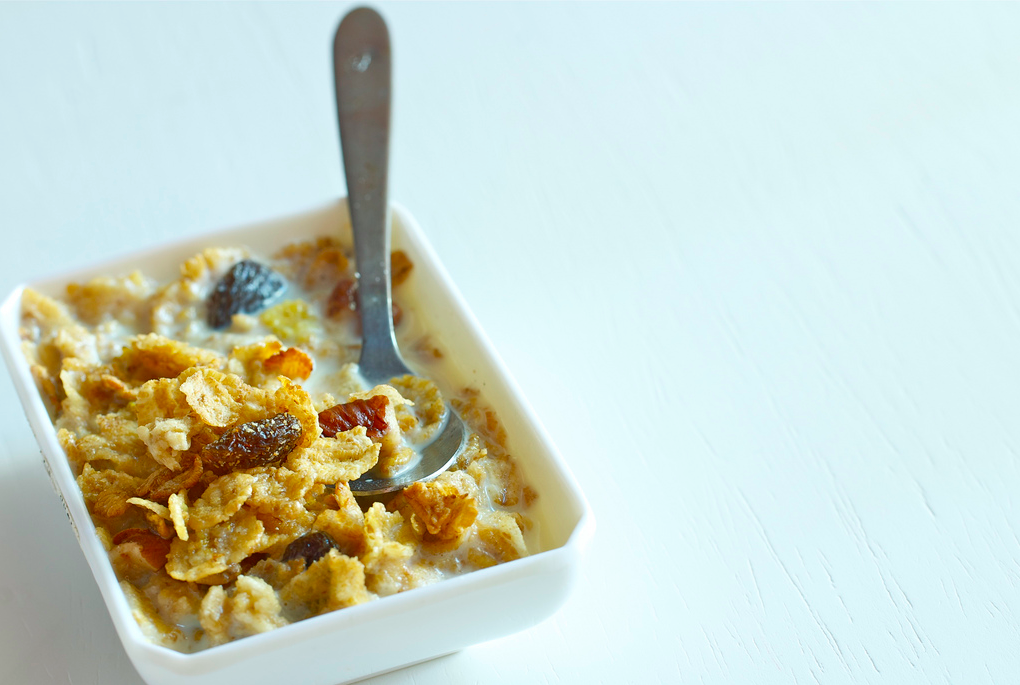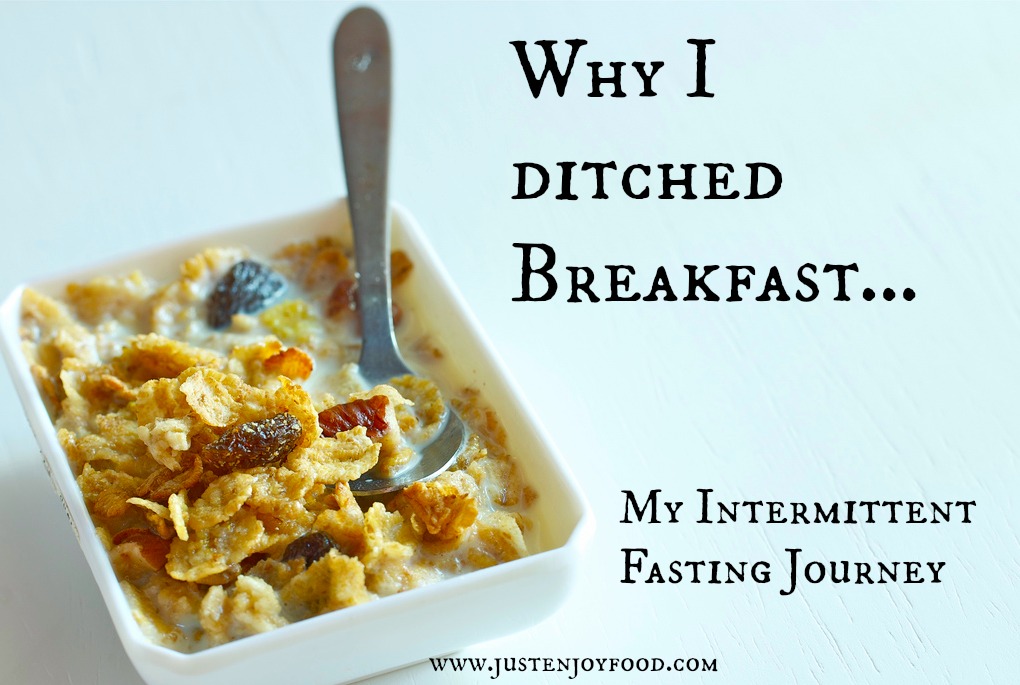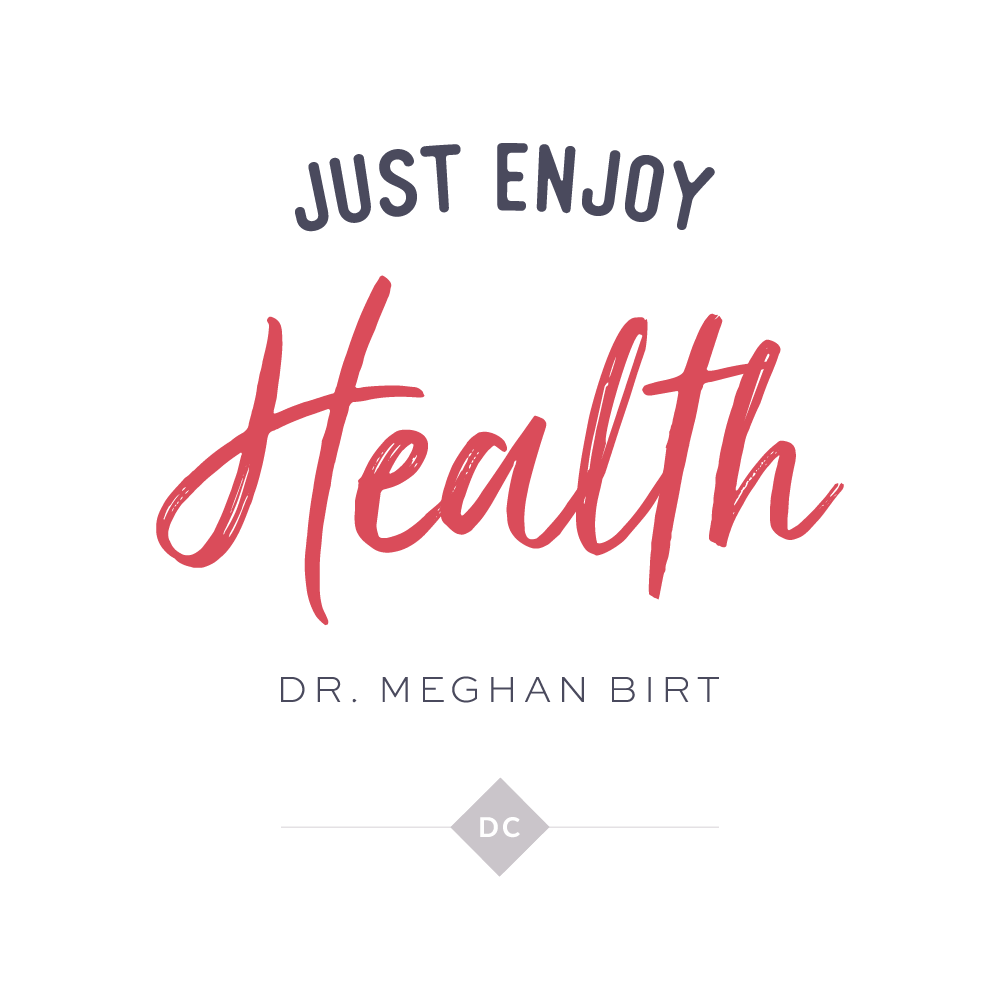
I want to let you in on one of my healing diet secrets! This is one thing that has made a big difference in revolutionizing my health. Now before I get into Intermittent Fasting I ask you to please keep an open mind about it because it can be a little controversial and has the opportunity to ruffle some feathers. I am going to talk about intermittent fasting, my journey and why I’ve ditched breakfast.
What is Intermittent Fasting (IF)?
Wikipedia’s defines Intermittent Fasting as: a pattern of eating that alternates between periods of fasting and non-fasting. It is a way where you get away from around the clock eating. That sounds pretty simple, and it can be. It is based on the research saying that people have a greater longevity with calorie restriction. Now I want to make it very clear that I have always been a little uncomfortable with the word calorie restriction and also with these studies. I am NOT an advocate for low calorie and restricted diets. I will never recommend them for anyone. But I will recommend IF. And when viewing these studies from a different lens, the lens of intermittent fasting, you may see that it becomes more clear. Intermittent fasting is a way to continue your daily fast (which happens when sleeping) for a little longer and gain the benefits of a fast and choosing to eat your first meal later in the day. AKA Ditching Breakfast. AKA, what I call Extended Healing.
In the United States we are accustomed food being around us all the time. The media and many trainers are telling us to eat every 2 hours, eat oftenfor blood sugar and hunger, don’t ever let yourself get hungry. We are also ingrained to thinking that breakfast is the most

important meal of the day and if we skip it we will suffer consequences and end up gorging ourself later in the day or become overweight. I used to be in that boat too, so don’t feel bad if you still think this way. Intermittent fasting is a mind shift away from how we were taught. I noticed with my body the earlier I ate and the more often I ate during my day the worse my tummy and brain felt. I want to give you an example so you can start to see what I am talking about. Think of if you had your own homestead. A homestead where you were almost solely dependent upon your land and your animals for food and ultimately survival. Think about your typical day. Would you wake up and have a huge breakfast, I mean the full spread that takes 1+ hours to prepare, cook and eat? No! You would hurry out to your land and animals and start your day of work. No breakfast needed. Then you would start to get hungry around noon time and would have lunch. Your lunch wouldn’t be a huge lunch because, once again, you don’t have a lot of time. But you would break-the-fast at that time and get back to work. Now think about dinner. You just had a long day of work that was productive and what you would call a success. What does dinner look like? It looks like a celebration for a job well done. You sit down and eat a big meal with your family, connect through conversation and enjoy the food and eat until you are full. That, to me, is the perfect example for intermittent fasting. Is this starting to make more sense?
You are essentially having breakfast (break-the-fast) later in the morning or early afternoon. As I am typing this I am eating my breakfast and it is 11 am. I don’t believe this is calorie restriction because I eat a lot for dinner. But it’s restricting your calories for a period of time (the morning) and then making up your calories later in the evening with a big dinner. This is not starvation! By eating a big dinner your body won’t think it’s starving. This is a lifestyle choice and NOT a diet!
I’ve made it simple stating that you skip breakfast. But there’s a little more to it. It’s called your Window of Eating. That means choose 16-18 hours to fast per day and then you eat for 6-8 hours of your day. If you eat your first meal at 11 then end your dinner around 7pm. That is an 8 hour eating window.
What are the Health Benefits?
I wouldn’t be telling you I skip breakfast if there wasn’t scientific data backing this up.
Benefits (from Dr. Mercola):
- Increased insulin sensitivity and mitochondrial energy efficiency – Fasting increases insulin sensitivity along with mitochondrial energy and slows aging and disease.
- Reduced oxidative stress – Fasting decreases the accumulation of oxidative radicals in the cell, and prevents oxidative damage to cellular proteins, lipids, and nucleic acids associated with aging and disease.
- Increased capacity to resist stress, disease and aging – Fasting induces a cellular stress response (similar to that induced by exercise) in which cells up-regulate the expression of genes that increase the capacity to cope with stress and resist disease and aging
I would also like to add a few other benefits:
- Amazing for digestive health– One way our digestive system can heal is by rest. Intermittent Fasting stops the process of needing to digest and work constantly. By doing that you get loads of healing to the GI system. It give your body the ability to heal from leaky gut, constipation, diarrhea, food allergies, and so much more! Read more about the gut HERE in my All about the Gut article.
- Weight Loss Benefits– The benefits of weight loss with Intermittent Fasting doesn’t have much to do with not eating in the morning. It has so much to do with hormone sensitivity. One main hormone that’s affected is Leptin. Leptin tells your body to burn fat as energy as well as tells you to stop eating. You want to have the ability to be a fat burner and to have your body use your fat stores for energy. That is where you can get lasting weight loss, from proper hormone signaling! If you just did a program where you ate less but still ate unhealthy processed foods you have the ability to lose some weight (10-15 lbs) but then you stall and most likely end up gaining the weight back. Why? You need to work on your hormones, your cells and the specifically the hormone receptors on your cells. I will say this again. IF is not a diet, it is a lifestyle change, which is focused on healing and hormone health.
- Works with your Circadian Rhythm– Our bodies are programmed to eat in the evening. When we have a large meal at night it fires up our Parasympathetic Nervous System which digests food and calms us down for rest. That is what we want in the evening. Have you ever noticed getting super sleepy after a large noon time meal? You stimulated your Parasympathetic Nervous System and got really tired when you wanted to be awake! I’ve heard many people sleep better with Intermittent Fasting, I can attest to that too!
Are there Downsides to Intermittent Fasting?
As with anything, there are downsides. I want to be open honest with the downsides to Intermittent Fasting here:
Downsides:
- Don’t try intermittent fasting unless you follow a healthy food full of nutrient dense foods and free of processed foods, gluten, and refined sugars (aside from the occasional treat).
- If you Intermittent fast while still eating grains, sugars and processed foods, you will not see the benefits. You will be hungry, craving foods, possibly crabby and not see healing or weight loss benefits. If you are NOT grain-free, don’t try Intermittent Fasting! Start with getting grain-free eating down well first! I have noticed that skipping breakfast is quite common in people who are overweight. I believe the difference between that way of eating and Intermittent fasting is the TYPE of foods being consumed. Processed foods, sugars, grains, treats vs. a intentional nutrition dense diet free of grains, refined sugars and high healthy fats.
- I will be honest, it can take some time to get the hang of the fasting window. You may be hungry at first and need to push through that until your hormones are more sensitive and receptive. If it’s hard at first, don’t get discouraged. It took my body about 2 months to get used to “skipping” breakfast until I wasn’t really hungry in the morning. I now listen to my body and eat my first meal between 10:30 am and 1:00 pm. I listen and eat when I am hungry.
- Be Flexible. This sounds like a lot of rules, but the most important thing to do is listen to your body! You don’t have to IF every day. You can eat for a window of 9-10 hours one day. It’s about the concept, not the rules. There are too many rules in life, let’s have this lifestyle of Intermittent Fasting be stress-free and healing to your body.
Who Should NOT Intermittent Fast
While I am not giving medical advice, I want you to know my thoughts on who should not IF:
- Women who are pregnant. If you are pregnant, don’t skip meals and don’t try Intermittent Fasting. Period! Eat breakfast and eat high amounts of protein and fat! This is crucial to having a healthy baby
- Nursing women. I don’t recommend IF while nursing either. Your baby needs the food and calories and don’t want to do anything to jeopardize that
- Diabetics. Diabetes can be managed and IF started, but not without being under close supervision from a health care practitioner who is an expert in fasting techniques
- Hypoglycemia and stomach ulcers. If you suffer from extreme hypoglycemia or stomach ulcers, this may not be the best time to be intermittent fasting. Focus on healing your blood sugar + ulcer first, then intermittent fasting could be started at that time
- A very sick and symptomatic body. I would wholeheartedly recommend getting under the guidance of a qualified practitioner to coach you through healing. I would love to help you or at least direct you to the best resource for you! (Contact Me Here)
What do I eat?
I want to walk you through a normal day of eating for myself so you can see this in action. There is no hard and set rules for IF. The biggest “rule” is listening to your body! You know best! If it doesn’t work for you now, try again later.
In the practicals of intermittent fasting you need to see your day as a window of fasting and a window of eating. You fast for 8-14 hours and eat for 16-10 hours. Each day can look different for you, or you may find a day or two a week you like an even longer fasting window. You don’t need to count calories, but you will consume about your normal amount of food in your eating window. This isn’t a restrictive diet. This isn’t starvation. It’s an eating window where you eat your day’s calories in a smaller amount of time.
- I wake up and make myself a large glass of water with lemon and apple cider vinegar and sip on water throughout my day. I also make myself a cup of coffee or tea and sip on that throughout my morning too. Sometimes I will add a splash of heavy cream to my coffee because everything’s better with a little cream (or coconut milk for a dairy-free option). That isn’t technically IF, but some days I like to do that and I guess my fast would be over and eating would start with that small amount of cream. In the AM if I don’t do coffee, I will sometimes consume bone broth.
- I have my first meal of the day somewhere between 10:30 am and 1:00 pm. I listen to my body and eat what healthy food sounds good to me. Sometimes it’s bulletproof bone broth protein and sometimes it is a bigger meal.
- I will snack sometimes between my first meal and my dinner. I, once again, listen to my body. I’ll grab a handful of sunflower seeds, dried coconut, or cheese. I don’t want to be hungry and for me each day is a little different.
- Dinner time!! I love my dinner time! Dinner should be gluten-free and clean. It should also be very big and full of good fats and proteins. You should not leave the table hungry. I never do. You shouldn’t be gorged or stuffed full, but you should also not leave the table hungry. If you leave the table hungry, you will probably start gaining weight because your body will think it is starving. Calorie restriction isn’t helpful in Intermittent Fasting.
- For me with Intermittent Fasting and ditching breakfast I feel better, I still eat well and my body heals more on day to day basis!
Tell Me… Do you Intermittent Fast? Have you ever tried it?
Get Dr. Meghan Mail

Don't miss out on anything! Join my healthy living community for encouragement delivered right to your inbox.

